How unfaithful wives were punished in Rus'
Categories: History
By Pictolic https://pictolic.com/article/how-unfaithful-wives-were-punished-in-rus39.htmlThe fate of peasant women in Rus' has never been simple. Husband violence was common in families. A husband could beat his wife for a tasteless dinner, for making a mess in the house or yard, for trying to defend his opinion in a conversation. Peasant women got it just like that, from a husband who drank or simply came home in a bad mood. As for serious guilt, such as adultery, the matter was not limited to beatings.
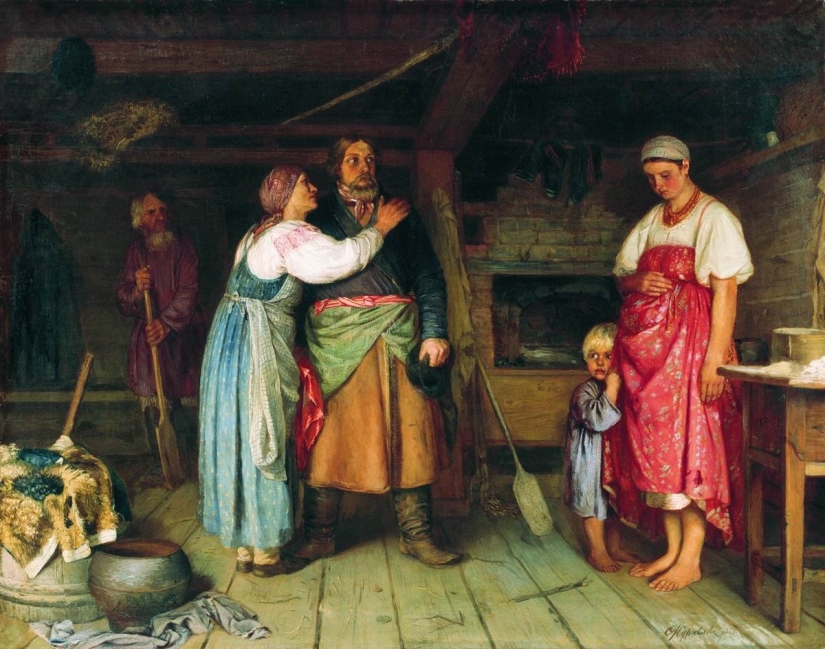
Husbands strictly monitored the decent behavior of their wives. And this was connected not only with Orthodox principles, according to which fornication was a mortal sin. In addition, the peasants were afraid that they would have to raise someone else’s child, on whom they would have to spend already scarce resources. Even more terrible was the popular rumor - a stain of shame fell on the “horned” husband and his entire family.
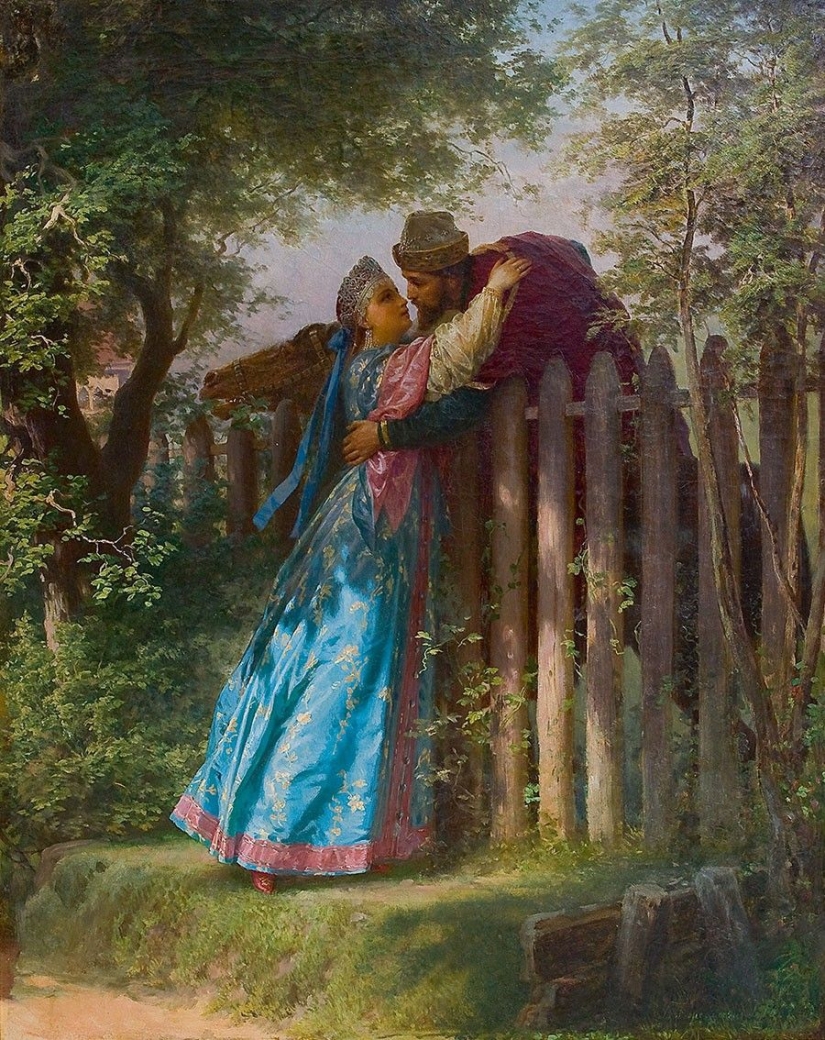
Therefore, adultery in Rus' was one of the most serious female offenses. Often the decision on punishment was made not by the husband and his family, but by the general village meeting. The whole village discussed the shameful incident and together came up with a punishment. True, the deceived husband had to fulfill it. After all, betrayal is a family matter.
There is a known case that occurred in the second half of the 19th century in the Yaroslavl province. There, after general advice, the husband harnessed the traitor to a cart along with horses and forced her to run 8 miles. At the same time, he whipped the woman if she fell. The unfortunate woman could not survive the execution and died the next day.
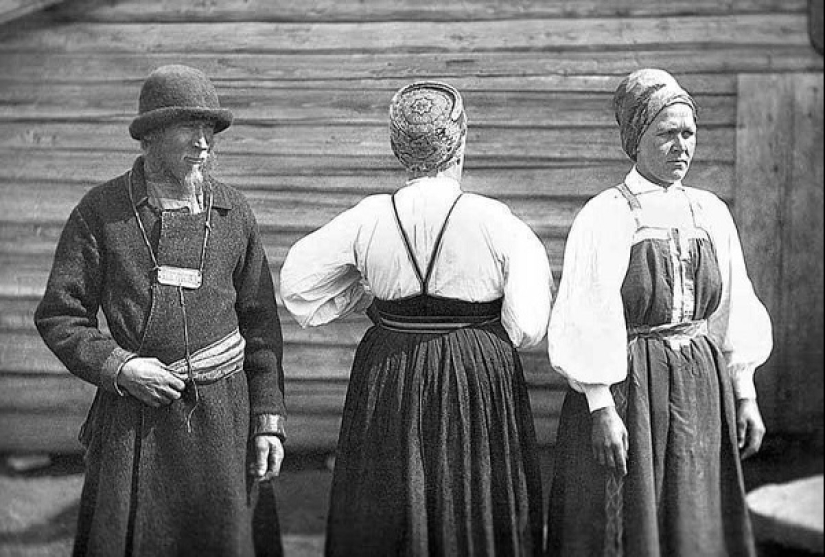
But most often the punishment was simple - the deceived husband beat his wife with a stick or whip as much as he saw fit. At the same time, even pregnant women were not given any concessions. There have been many recorded cases of women dying or losing a child. Usually, they tried to hush up stories of this kind, passing off death from beatings or abuse as natural or an accident.
But even if the authorities found out about the massacre, the killer did not always end up in hard labor. There were no witnesses to the murder or they gave false testimony. It was also useless to seek protection from officials. They tried not to interfere in such matters, so as not to go against centuries-old traditions. A trial in court could only worsen the woman’s situation.
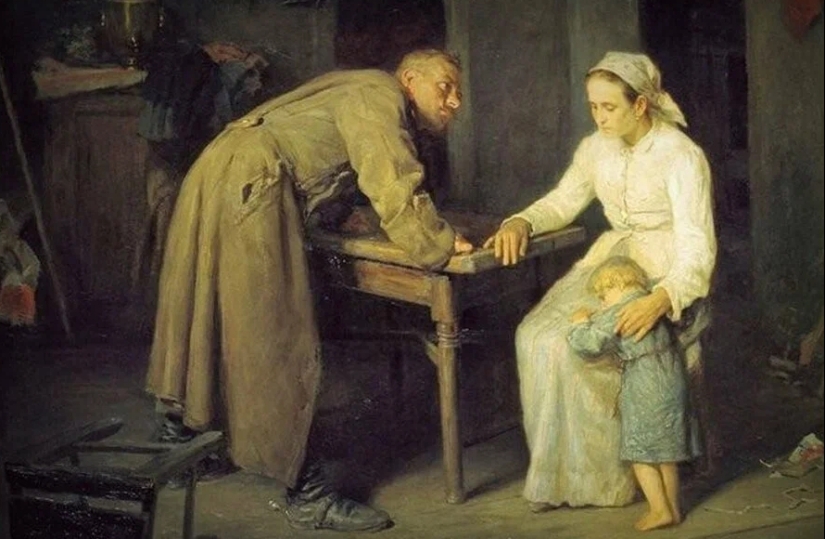
In one of the villages of the Arkhangelsk province, a woman who lost a case against her husband was tried at a gathering. The elders ordered the impudent minx to be tied to a fence and staged a mass rape. After this, the woman was expelled from the community, not even allowing her to take the most necessary things.
Punishments for cheaters were very different. In central Russia, a woman could be tied to a pillory in the middle of a village for several days or put in a cellar. The Don Cossacks tied the offending wife by the braid to the tail of the horse and flogged her while sitting astride. Often, husbands and their relatives tied up the cheater and simply drowned her in the river at night. In such cases, it was not customary to ask about her fate in the village. Maybe she moved away from shame?
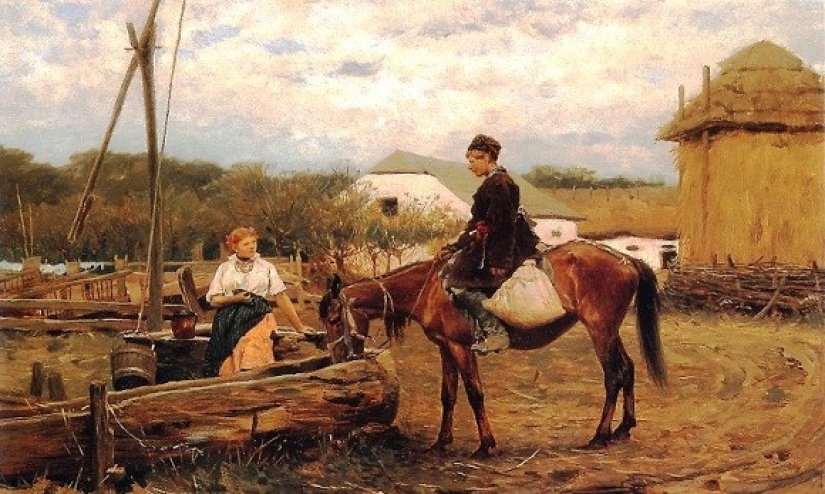
Rarely did anything change even if a woman became a victim of sexual violence within the family. For many centuries, daughter-in-law existed in Rus' - a disgusting custom that people turned a blind eye to until the end of the 19th century. There is a known case when a peasant woman complained to a village court about her father-in-law, who forced her to be intimate. She was found guilty of debauchery and put under arrest on bread and water. Traditions and the patriarchal way of life rarely allowed a woman to escape punishment, even if she became a victim of slander.
The right of a husband to punish his wife has been recognized in Rus' since pre-Christian times. In the 16th century, it was legalized in Domostroy, a collection of rules and advice for Russian families, written by Archpriest Sylvester. The book taught that it is possible and necessary to punish your spouse, and that respect and harmony in the home rest on this. True, she also warned against excessive assault, leading to injury and death.
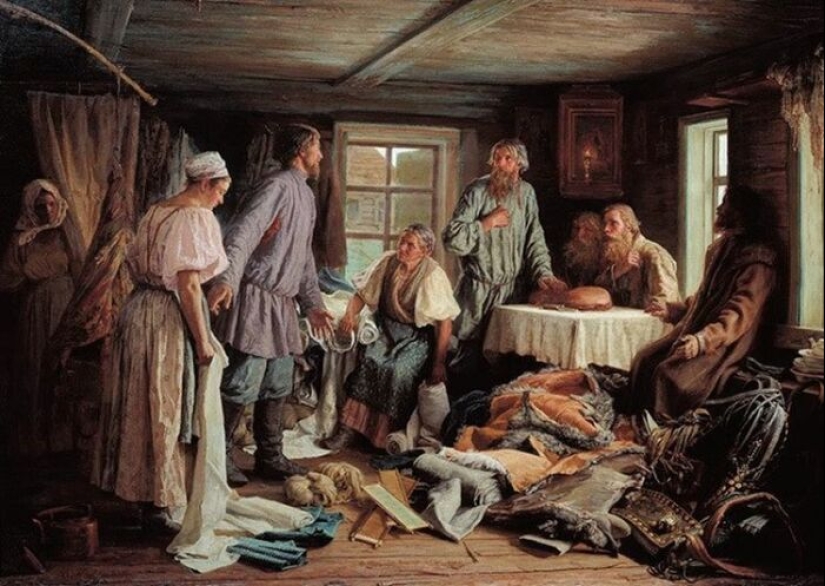
According to Domostroi, a deceived husband could beat his unfaithful wife and throw her out the door. In this case, all property and joint children remained with the spouse, as the injured party. In this case, the woman was doomed to shame and poverty. In such cases, peasant women preferred to go as far as possible from their homes and seek refuge in monasteries.
With noble women everything was different. Even princes beat their wives for adultery, but usually it did not come to murder. The unfaithful wife, as a rule, was herself a member of the nobility and could count on the protection of relatives. If they did not want to take on part of her shame, then the aristocrat had two options - life in exile in a foreign land or becoming a nun.
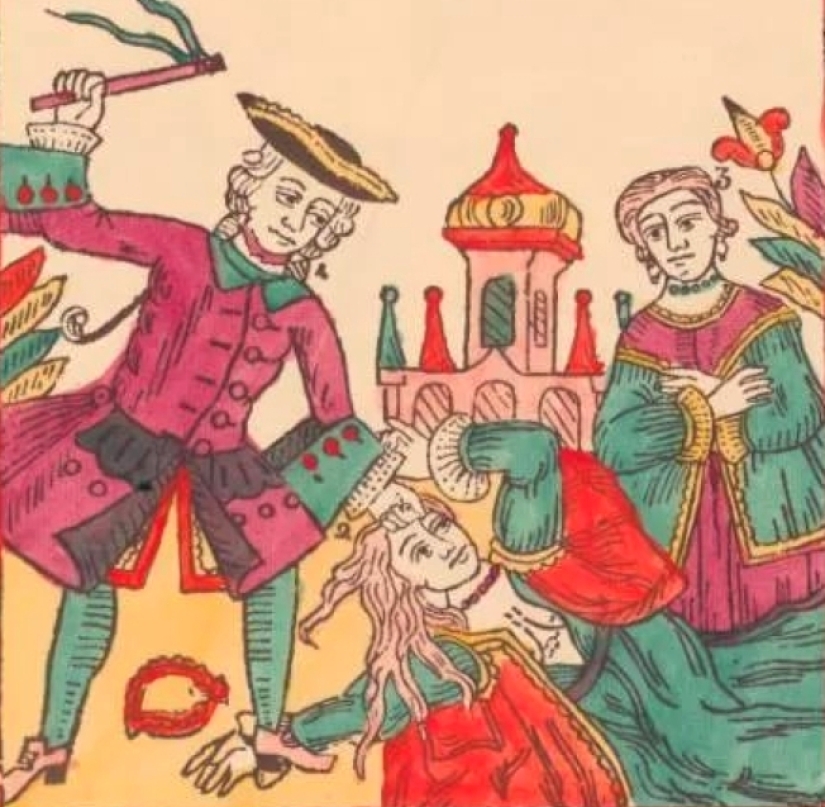
But men’s infidelity was treated much more simply. A presumptuous “woman walker” could be shamed at a village gathering or beaten by his wife’s father or brothers. But they did this as a means of admonition, without malice. It was believed that an unfaithful husband was bad, but quite natural. Such is the male walking breed.
Recent articles

It's high time to admit that this whole hipster idea has gone too far. The concept has become so popular that even restaurants have ...

There is a perception that people only use 10% of their brain potential. But the heroes of our review, apparently, found a way to ...

New Year's is a time to surprise and delight loved ones not only with gifts but also with a unique presentation of the holiday ...